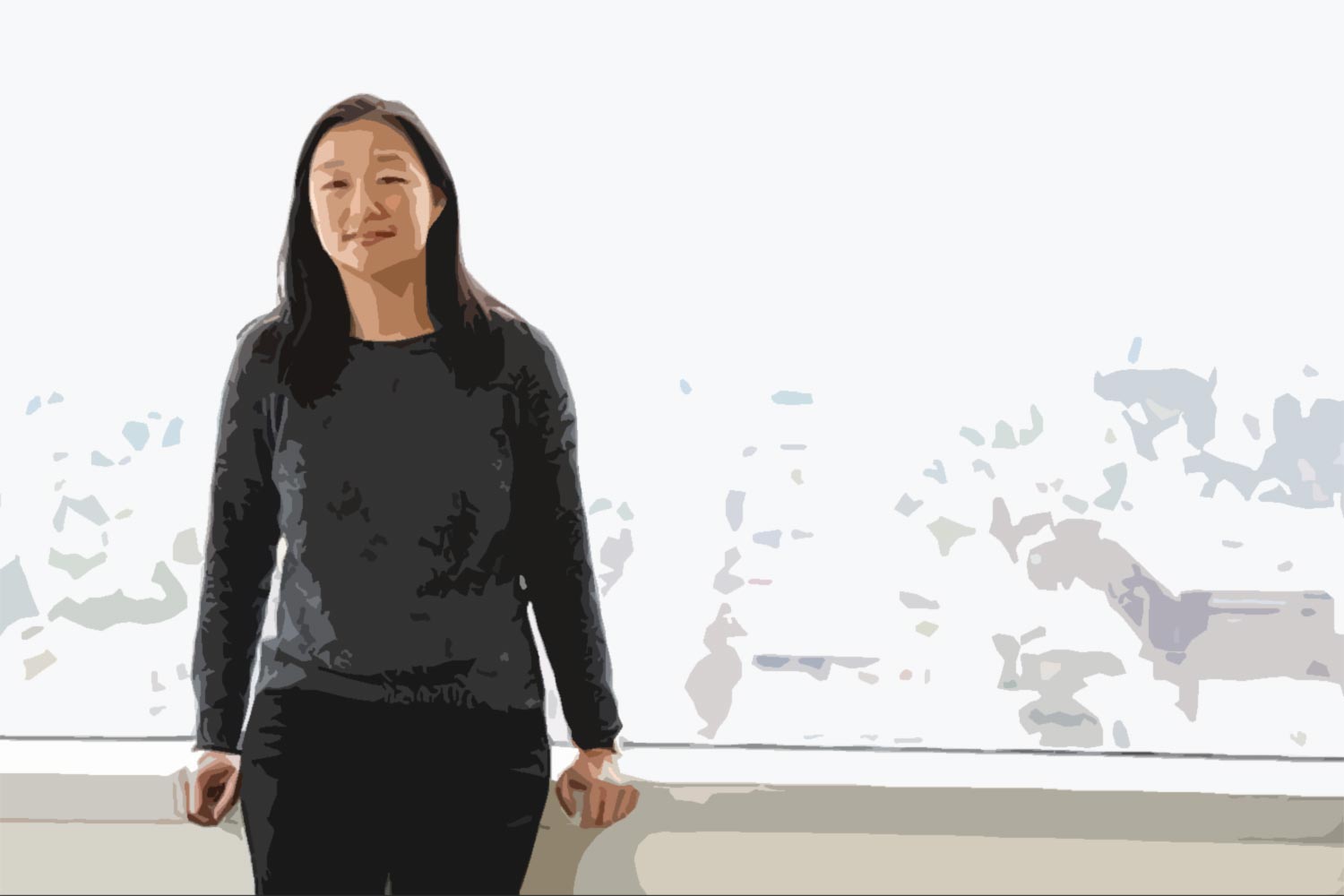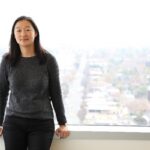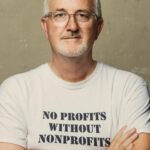Against the Current: Eunice Lin Nichols
Interview with Eunice Lin Nichols, Vice President at Encore.org and campaign director for Generation to Generation, delves into bridging generational divides.

“I’m obsessed with connecting across generations to create a new kind of extended family.”
I’ve been focused on aging in America since the early 2000s, when I learned there’s already a waiting list for Meals on Wheels in many communities. But I was interested in more than just food: I was interested in isolation, fighting the beauty myth, and how a return to the intergenerational norms of our past could help America thrive in the future.
I became aware of the work of Encore in challenging routine and inspiring new acts of courage amongst our elders. Eunice Lin Nichols has been out front of this, and I wanted you to learn about her, her amazing work, and her ideas about the future.
What’s your thing…not what you do, but why you do what you do?
I’m obsessed with connecting across generations to create a new kind of extended family. My parents immigrated to this country from Taiwan, so I grew up with an expansive view of “home.” I always had lots of aunties, uncles, grandmas, and grandpas in my life. Some were related to us, but most were family of our own making.
I have two boys of my own now, and I want them—and all kids—to grow up knowing there’s a whole world of caring older adults out there who will treat them like extended family. And I want them to grow into the kind of elders who will reflexively care for younger generations.
OK, now tell us what you do.
I’ve been in the “Encore” space since my early 20s, trying to convince the world that connection and collaboration between generations is where it’s at. Right now, I’m designing and launching Encore.org’s new Gen2Gen Innovation Fellowship, which will help support a group of catalytic innovators and entrepreneurs working to create a post-Covid world that puts generational connection and collaboration front and center. If there’s a silver lining in the current global crisis, it’s that the whole world is now intensely focused on the reality of our entwined fates.
As a young leader, what makes you want to scream most about the state of philanthropy? What gives you the most hope for our sector?
I want to scream about siloed funding that pits the old against the young. I get equally riled up about deficit framing that sees older adults only as recipients of service. It’s ironic that the tiny field of aging-focused philanthropy rarely acknowledges or promotes the assets of older people. These days, it’s virtually unheard of to fund youth work from a deficit frame. It’s time the aging sector caught up.
It gives me hope when foundations like The Eisner Foundation tear down internal silos and fund programs that intentionally bring old and young together; when funders who prioritize different ends of the age spectrum come together to jointly support intergenerational work; and when funders support, for example, the co-location of preschools and dementia care facilities. Shared sites make it so clear how young and old fit together like pieces of a puzzle.
If you could get the ear of a presidential candidate, what law or policy would you most urge them to enact, and how would it radically rock your world?
I’d ask our political leaders to stop siloing policies for the old and young. California, for example, is in the process of developing an ambitious Master Plan for Aging and an equally ambitious Master Plan for Early Learning and Care, dealing with critical challenges facing incredibly vulnerable populations at both ends of the age spectrum. I’d love to see policymakers develop those plans jointly, around a common table, and get really creative about how each population might be the perfect complement or support for the other.
How much money would you need to truly run wild and what would it allow you to do?
I’ve run a number of prize and fellowship programs for Encore over the years, with financial awards ranging from $5,000 to $100,000. But I dream of launching an Xprize-level endeavor with $1 million awarded to social innovators doing soul-stirring, game-changing work to end the world’s growing loneliness epidemic, which is now hitting old and young alike.
The necessity of physical distancing during this pandemic is creating more division, disconnection, ageism, and loneliness than ever before. At the same time, we’re reminded just how much we need one another. It’s time we started investing significantly more human ingenuity—and hard cash—in bridging these seemingly insurmountable divides.
What was the last code word, bizsplaining moment or condescending comment you got from an elder? What did you say, or wish you could have said to push back?
The phrase I’ve heard more often than I care to count: “You’re too young to remember when…” I’ve even gotten that on the phone from someone guessing at my age based on my voice! It’s an insidious part of our generational vernacular that necessarily frames us as unrelatable to one another. The unspoken subtext is “…and thus you couldn’t possibly understand.”
It creates a relational wedge that simply doesn’t need to be there. You should no more preface a story you’re telling me with, “You’re too Chinese to relate to what I’m about to say,” then you would with, “You’re too young to remember what I’m about to say.” Just tell me your story—and I promise I’ll feel more connected to you as a result!
Talk about your best elder ally and how they inspired you through their actions.
I’ll tell you about the team of elders that profoundly influenced me in my 20s. I had just taken a new job in San Francisco running Experience Corps, an intergenerational program that brings older adults into public schools to help kids read by third grade, when my world was rocked by 9/11.
It was my crew of older volunteers who taught me and my young staff how to hold and express collective grief, assuring us we would get through this together. And when I was seven months pregnant, a group of African American Experience Corps members in Bayview Hunters Point threw me my first baby shower. They taught me how to hold and express collective joy, passing their wisdom across generational and cultural lines.
Most importantly, Experience Corps volunteers taught me how important it is to create a world where every young person is surrounded by a web of support anchored by older generations, and everyone has a sense of extended family, a sense of home.
Many talk about diversity in the sector, or the lack of it. How do you and your org walk the walk?
I’ve sat in plenty of meetings over the years where I’ve been the youngest—and only non-white—voice at the table. Today I’m proud to be part of the most age-diverse team I’ve ever worked with, spanning five generations. In our work, we’re bringing together a growing number of older and younger activists, innovators, and leaders who are transforming the “encore” space as they scale intergenerational solutions to pressing social problems. And our Encore Public Voices Fellowship arose out of the need to expand and diversify the national conversation about age, intergenerational connection, and social justice.
Tell us about another young leader everyone should know about.
I’m a huge fan of a group of spiritually diverse millennials—Adam Horowitz, Katie Gordon, Brittany Koteles, Rachel Plattus, Christina Tran, Sarah Jane Bradley, Alan Webb, and Diana Marin—who have formed a national grassroots alliance with older women religious called Nuns & Nones. Together, they’re creating new forms of spiritual community and taking collective social action around affordable housing, healthcare, education, immigrant justice, climate resilience, racial justice and more.
What do you want to be able to say about yourself and your leadership in 20 years?
In 20 years, I’ll be turning 65. I want to be able to say that I’ve done everything I can to create a world where deeply meaningful interaction between the generations is simply the norm. Best of all, I’ll finally be engaged in my own encore! Whatever that entails, I’ll be working hard to be somebody’s “best elder ally,” and I’ll definitely still have a robust list of young leaders I’m excited to tell you about.
Can you tell us what you’re involved with now, during the Covid-19 crisis, and maybe some innovations you’ve seen in the field that engage encore leaders and young people?
Over the last two months, my colleagues and I have hosted virtual conversations with more than 800 leaders and activists of all ages in our network who are working tirelessly to bridge generational divides in the face of physical distancing and social isolation. And we have encountered hundreds more who are stepping urgently into this space, many for the first time.
I’m particularly inspired by two start-ups. Mon Ami, founded by Encore Public Voices Fellows Joy Zhang and Madeline Dangerfield-Cha, brings college students who are missing their own families together with older people as companions. During the pandemic, Mon Ami has partnered with the city of San Francisco to repurpose their app so volunteers can sign up to call isolated seniors for friendly check-ins and to coordinate errand runs for groceries, prescriptions, and other essentials.
Caribu, a subscription-based video-calling app, integrates children’s books and activities and allows kids to read with a trusted adult (often grandparents!), even though they’re not physically together. During the pandemic, founder and Gen2Gen Innovation Fellow Max Tuchman has raised corporate support to make Caribu free of charge. She’s also sharing the app with intergenerational programs to help keep isolated kids and older volunteers connected through reading and other literacy activities.
I hope you’ll check both of them out!
You might also like:
- Is There An Inequality Tipping Point for Nonprofits?
- Using Philanthropy to Address Racial Harm and Inequity
- Beyond the Hype: Why ESG Frameworks Miss the Mark for Small Nonprofits
- How Nonprofits Can Benefit from Embracing ESG Practices
- ESG is Everywhere. Should It Matter to Nonprofits?
You made it to the end! Please share this article!
Let’s help other nonprofit leaders succeed! Consider sharing this article with your friends and colleagues via email or social media.
About the Author
Articles on Blue Avocado do not provide legal representation or legal advice and should not be used as a substitute for advice or legal counsel. Blue Avocado provides space for the nonprofit sector to express new ideas. The opinions and views expressed in this article are solely those of the authors. They do not purport to reflect or imply the opinions or views of Blue Avocado, its publisher, or affiliated organizations. Blue Avocado, its publisher, and affiliated organizations are not liable for website visitors’ use of the content on Blue Avocado nor for visitors’ decisions about using the Blue Avocado website.









I’m inspired by Eunice’s philosophy, vision and approach to her work. I worked at the national office of the Gray Panthers when I was 18 and Maggie Kuhn, its founder, was my first political mentor. She helped me believe I had something of value to offer to the world, while at the same time clearly showing the world how much value she contributed as an elder. And she debunked the myth that generations are naturally polarized. I have long missed her visionary voice and the absence of a truly intergenerational national movement that connects the issues of young and old. It’s encouraging to hear that Eunice and others are continuing the important work of the Gray Panthers, whose motto, “age and youth in action,” could be a blueprint for these times.
I’m inspired by Eunice’s philosophy, vision and approach to her work. I worked at the national office of the Gray Panthers when I was 18 and Maggie Kuhn, its founder, was my first political mentor. She helped me believe I had something of value to offer to the world, while at the same time clearly showing the world how much value she contributed as an elder. And she debunked the myth that generations are naturally polarized. I have long missed her visionary voice and the absence of a truly intergenerational national movement that connects the issues of young and old. It’s encouraging to hear that Eunice and others are continuing the important work of the Gray Panthers, whose motto, “age and youth in action,” could be a blueprint for these times.
Dorel — this comment means so much to me! Thanks for sharing your story. Maggie Kuhn and the Gray Panthers paved the path for the work we do today.